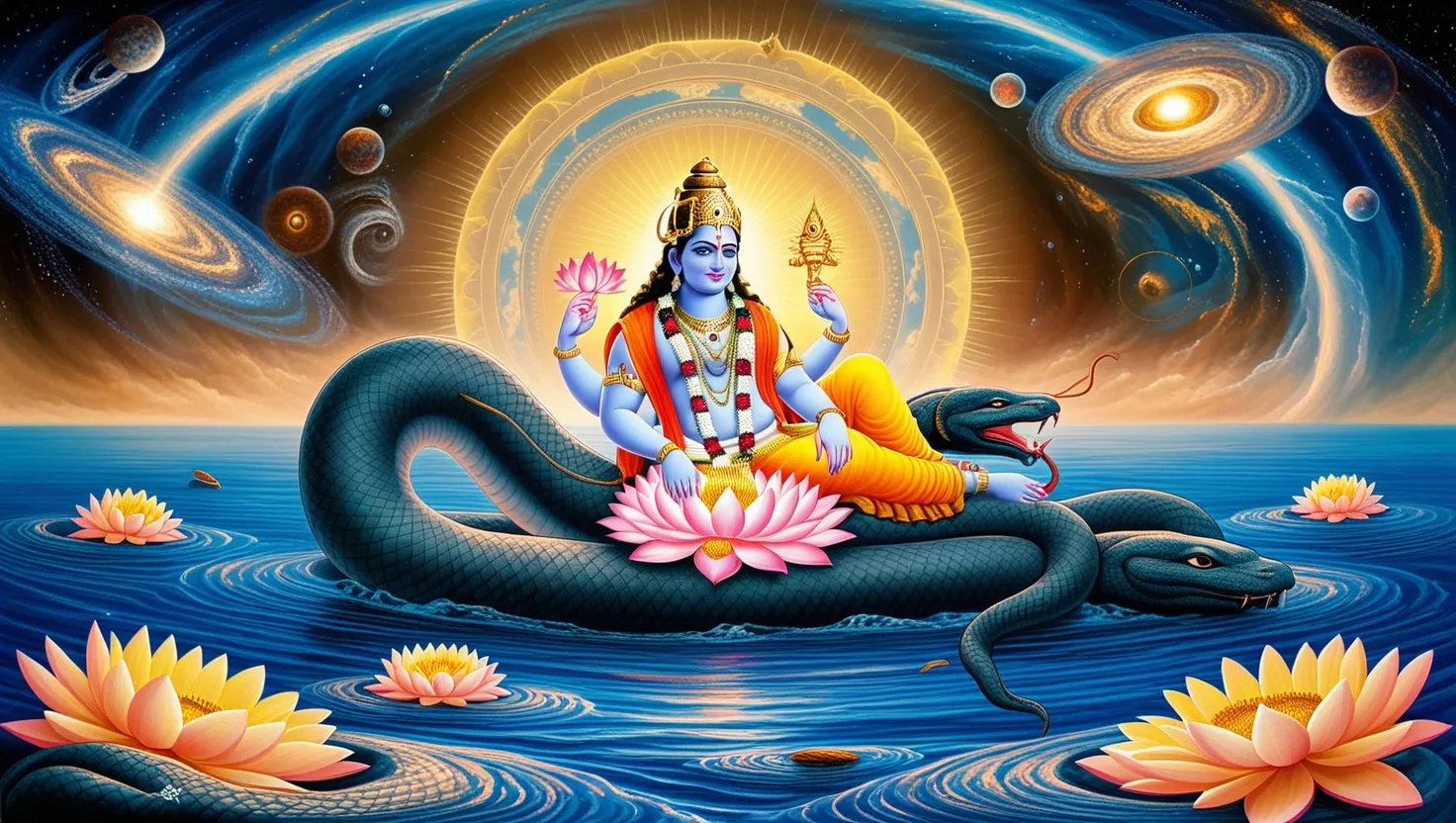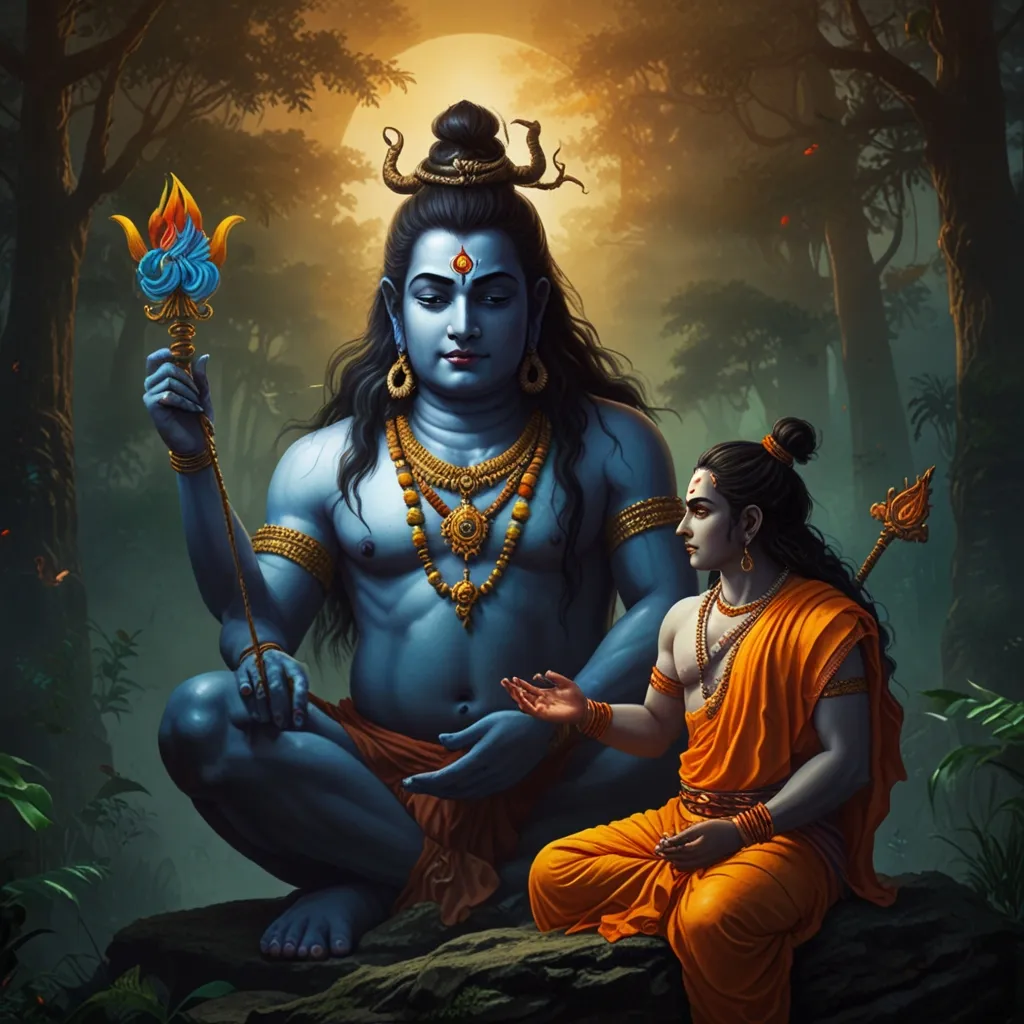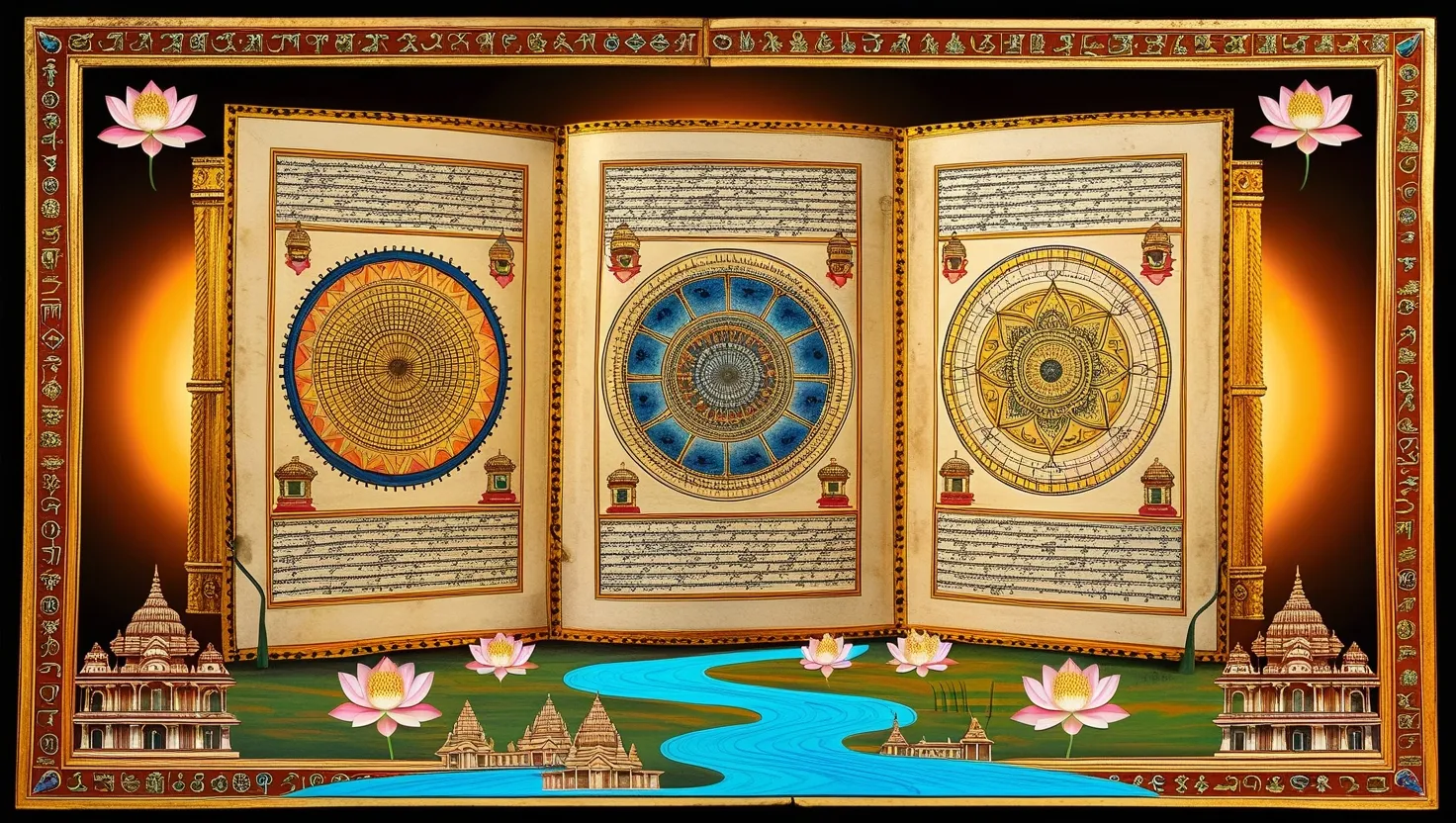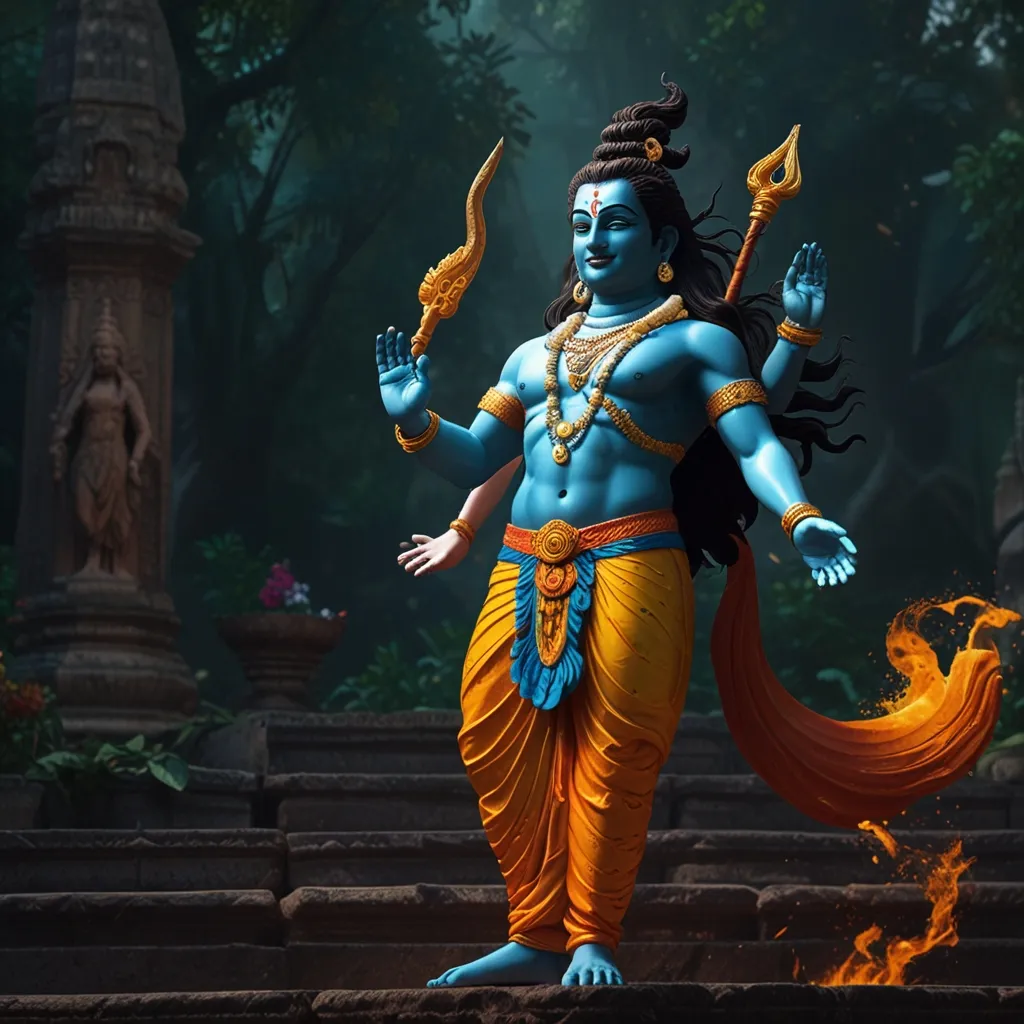As we delve into the rich tapestry of Vedic philosophy, one concept stands out for its profound and multifaceted nature: Vac, the sacred idea of speech. Often overshadowed by the grand narratives of gods and epic battles, Vac is more than just a means of communication; it is the divine expression of the universe itself.
In the Rig Veda, one of the oldest and most revered texts of Hinduism, Vac is introduced as a deity in its own right. The hymns dedicated to Vac reveal a complex and nuanced understanding of speech that is both creative and destructive. Vac is depicted as the bridge between thought and reality, a force that can manifest worlds and also dismantle them. This duality is a testament to the powerful role speech plays in shaping our reality.
The concept of Vac is deeply intertwined with the idea of manifestation. In Vedic philosophy, words are not just mere sounds but carry the power to bring thoughts into being. The Rig Veda describes Vac as the mother of the Vedas, emphasizing her role in the creation and sustenance of the universe. When the ancient sages recited the Vedic mantras, they were not just uttering words; they were invoking the divine power of Vac to regenerate and nourish the cosmos.
This reverence for Vac extends beyond the realm of creation to influence various aspects of Vedic rituals and prayers. In these contexts, speech is not just a tool for communication but a sacred act that connects humans with the cosmos. The precise pronunciation of Vedic mantras, for instance, is believed to have the power to align the individual with the universal rhythms, thereby achieving a state of harmony and balance.
The philosophical discourse surrounding Vac also delves into the ethics of communication and expression. The Vedas teach us that words have the power to both heal and harm. The mindful use of speech is therefore a crucial aspect of Vedic ethics, encouraging individuals to be cautious and thoughtful in their communication. This principle is reflected in the concept of “satya” or truthfulness, which is one of the core virtues in Hinduism. Speaking the truth is not just a moral obligation but a way of aligning one’s words with the divine order of the universe.
Beyond the Vedas, the influence of Vac can be seen in various other traditions of Hinduism. In the Upanishads, for example, the concept of Vac is further elaborated upon, particularly in the context of the ultimate reality, Brahman. Here, Vac is seen as a manifestation of Brahman, the unchanging and all-pervading essence of the universe. This connection underscores the idea that speech, when used wisely, can be a powerful tool for spiritual exploration and self-realization.
In modern contexts, the reverence for Vac continues to inspire and guide us. In an age where communication is more prolific than ever, the ancient wisdom of Vac reminds us of the importance of mindfulness in our expression. It encourages us to reflect on how our words shape our world and our consciousness. The concept of Vac also resonates with contemporary discussions on the power of language and its impact on society. It highlights the need for responsible communication, where words are used to uplift and unite rather than to divide and harm.
The Tantric traditions of Hinduism also build upon the Vedic concept of Vac, particularly in the context of the divine word. Here, Vac is seen as an agent of transformation, capable of bridging the gap between the human and the divine. The elaborate mysticism of the word in Tantric texts underscores the idea that language is not just a human construct but a divine force that can elevate us to higher states of consciousness.
In my own journey through the realms of Vedic philosophy, I have found the concept of Vac to be particularly enlightening. It has made me more aware of the power of my words and the importance of using them with intention and care. Whether in personal relationships, professional interactions, or even in my own inner dialogue, the principle of Vac reminds me to be mindful and respectful in my communication.
The influence of Vac extends beyond the spiritual realm into the creative and artistic aspects of human expression. In Hindu mythology, Vac is often associated with Saraswati, the goddess of knowledge, music, and the arts. This association highlights the creative potential of speech and language, emphasizing that words can be used not just for communication but also for artistic expression and innovation.
In conclusion, the concept of Vac in Vedic philosophy offers a rich and multifaceted exploration of the role of speech in our lives. It is a reminder of the divine power inherent in our words and the importance of using them with wisdom and mindfulness. As we navigate the complexities of modern life, the ancient reverence for Vac continues to guide us, encouraging us to use our words as tools for creation, healing, and spiritual growth. By embracing this nuanced understanding of speech, we can deepen our connection with the cosmos and with each other, fostering a world where words are used to uplift and inspire rather than to harm and divide.






